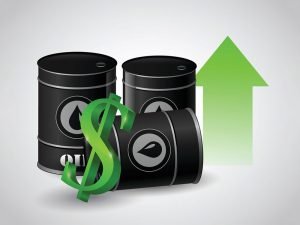
London — Market forces would quickly undermine any scheme to impose a price cap on Russian oil, one of the architects of benchmark global oil prices said, even if the United States and the European Union can convince top Asian importers to take part.
Many countries have imposed sanctions on Russia following its invasion of Ukraine, which Moscow calls a “special military operation”.
The measures have failed in one of their prime aims: to reduce Russia’s massive revenues from natural resource exports, as international oil prices climbed to 14-year highs shortly after the invasion began on Feb. 24. They remain above $100 a barrel.
Western leaders have proposed addressing that through an oil price cap to limit how much refiners and traders can pay for Russian crude.
The history of similar attempts to limit the price suggests that a cap would lead to higher, not lower prices, and to the emergence of a grey market for Russian oil, said Jorge Montepeque, who is credited with reforming some of the most important benchmarks for pricing oil.
“All these mandates to fix prices have been tried before during high inflation,” Montepeque said.
“The U.S. tried to fix prices for oil in the 1970s, the UK tried fixed forex prices in the 80s, Mexico tried fixed tortillas prices. And then – boom! – the market settles. It is a waste of time.”
U.S Treasury Secretary Janet Yellen is touring Asia to try to persuade more nations to join the cap scheme.
It is designed to prevent Russian President Vladimir Putin from generating more revenues for the war in Ukraine, while allowing Russian oil to flow to avoid a further price spikes and wider inflation.
Brazil, China, India and some African and Middle Eastern countries have refused to condemn the Russian invasion and have increased imports of Russian energy, which sells at deep discounts to global benchmarks because many European refiners have stopped buying Russian oil since the invasion.
Yellen has said China and India stood to benefit from the cap as they could buy Russian oil even more cheaply than they do now. Little progress has been reported to date on the design of the scheme or in enlisting the biggest buyers of Russian oil.
“Let’s assume, everyone – every possible buyer in the world – agrees,” Montepeque said.
“Then Russia says: ‘I am not selling a drop of oil. Bid me!’ Immediately the system breaks down as buyers have an alternative to the market price of oil.”
Montepeque was head of market reporting at commodity price reporting agency Platts, a unit of McGraw Hill Financials Inc, between 2002-2016.
He has been credited with creating Platts’ market-on-close (MOC) pricing mechanism, better known simply as “the window”, which every working day prices billions of dollars of oil sales, futures and other derivatives, and which has become the dominant oil price mechanism.
Platts and its rivals, including privately-held Argus Media and ICIS, provide prices for opaque over-the-counter commodities markets.
Those prices are used in formulas to settle much of the world’s global trade in raw materials.
After leaving Platts in 2016, Montepeque later worked for Italy’s Eni and helped set up another pricing agency.
BUYERS’ STAMPEDE
Global oil demand has recovered quickly from the pandemic, leaving the oil market short of supply as producers struggle to recover from a lack of investment in 2020-2021.
Demand stands at around 100 million barrels per day and leading members of the Organization of the Petroleum Exporting Countries Saudi Arabia and the United Arab Emirates are pumping at near capacity. Russia produces around 10 million bpd or 10% of global oil.
Montepeque says capping prices when markets are so tight is particularly difficult.
“Look at Iran. If there is a differential between the market price and your price – demand will always be there,” he says.
Iran was forced to reduce exports to nearly zero when under pressure from U.S. sanctions, the world faced a glut of oil and refiners had plenty of alternative suppliers they could use.
But as demand recovered and supply lagged, Iran boosted exports of crude and fuel to China and other Asian consumers to well above 1 million bpd.
Even if Russia agreed to supply buyers paying at the limit set by the price cap scheme, buyers would challenge the system, Montepeque said, as they would have a strong financial incentive to buy cheaper oil to maximise profits or to resell it.
“Someone like India will say – it is my million barrels,” he said. “I need it more than anyone else. So buyers will bid this oil up themselves. There would be a queue of people all the way to St. Petersburg trying to buy cheap oil.”
Reporting by Dmitry Zhdannikov; editing by Barbara Lewis – Reuters
Follow us on twitter



